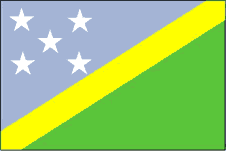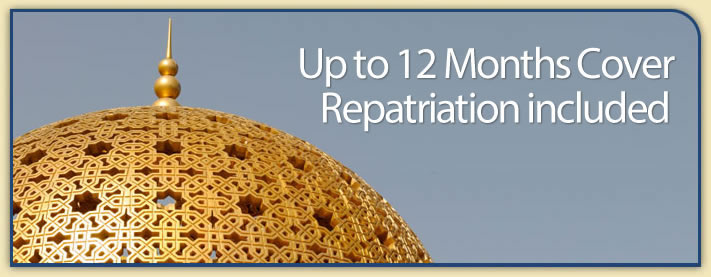Country Guide • Solomon Islands

The Solomon Islands is an archipelago of several hundred islands in the South West Pacific Ocean. The Solomon Islands comprise the six main islands of Choiseul, Guadalcanal, Malaita, New Georgia, San Cristobal and Santa Isabel.
| Official Name | Solomon Islands |
|---|---|
| Area | 27,556km² (10,639mile²) |
| Population | 509,000 |
| Continent | Australia/Oceania |
| Population per mile² | 46 |
| Capital City | Honiara |
| Religions | Anglican 45%, Roman Catholic 18%, United (Methodist/Presbyterian) 12%, Baptist 9%, Seventh-Day Adventist 7%, other Protestant 5%, indigenous beliefs 4% |
| Language | Melanesian pidgin in much of the country is lingua franca; English is official but spoken by only 1%-2% of the population, there are in fact 120 indigenous languages |
| Government | Parliamentary democracy |
| Currency | Solomon Islands Dollar |
| GDP | $800 million |
| GDP per Head | $1,700 |
| Natural Resources | Fish, forests, gold, bauxite, phosphates, lead, zinc, nickel |
| Land Use | Arable Land 1.5% |
| Agriculture | Beans, cocoa, coconuts, palm kernels, rice, potatoes, vegetables, fruit; cattle, pigs; timber; fish |
| Industry | Fish (tuna), mining and timber |
| Tourism | The British and Foreign Commonwealth office state: We advise against all holiday and other non-essential travel to rural Guadalcanal and the island of Malaita where violent incidents occur. We advise visitors to exercise caution in Honiara; to avoid public gatherings and be extra vigilant at all times. At the invitation of the Solomon Islands Government, armed police and military personnel from Pacific Island Forum countries, including Australia and New Zealand, have been present in the Solomon Islands since the end of July, to help restore law and order. This has provided much improved general policing in and around Honiara although there is still the risk of incidents involving armed criminals. Tourists and expatriates are not believed to be specific targets, but there is potential for civil unrest and you should exercise a high level of personal security and vigilance. There are no reports of any trouble in the rest of the Solomon Islands, where the bulk of the main tourist destinations are situated. The risk from terrorism is low |
| Natural Hazards | Typhoons, but rarely destructive; geologically active region with frequent earth tremors; volcanic activity |
| Health Risks | Malaria, Hepatitis A, Typhoid, Dengue fever and Legionnaires disease |
| Climate | The Solomon Islands has a tropical climate characterised by high humidity and hot temperatures which are tempered by sea breezes. There is very little seasonal variation. Average annual rainfall is 120 inches and the average temperature in Honiara is 27°C throughout the year |
| Time | GMT/UTC+11 hours |
| National Days | July 7 Independence Day |
| Visas | Visas are not required for British nationals visiting the Solomons. Passports should have at least six months validity, and passengers should be in possession of a return or onward ticket. It is strongly advised that all British nationals (including those residing in the Solomon Islands) obtain a multi-entry visa for Australia |
| British Embassy | Embassy Details |
Information Only
The content above is for information purposes only and we have tried to ensure that the information is as accurate as possible. We cannot accept any responsibility for any inconvenience, loss or injury as a result of the information above. You should always check and verify any critical information like visas, health and safety and customs with the relevant authorities before you travel since information can change at any time.



